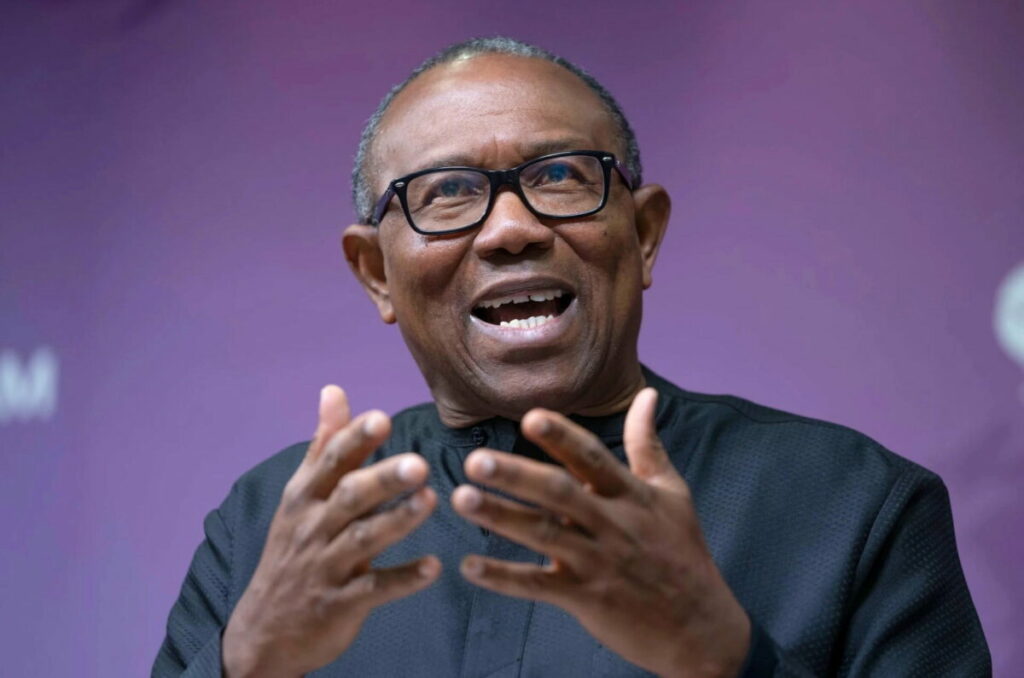- Obi highlighted its transparency, efficiency, and technological advancement.
- Obi contrasted South Africa’s exemplary democratic process with Nigeria’s flawed 2023 elections.
The Labour Party presidential candidate in the 2023 elections, Peter Obi, has emphasised the importance of Nigeria learning from South Africa’s approach to elections.
Obi said this in a post on his verified X handle on Saturday.
On Tuesday, former President Goodluck Jonathan said many politicians will not approach the court if the judiciary has been fair in election disputes.
Jonathan said “in South Africa, the electoral management body will never compromise, they all know. If you lose the election, you just wait for the next election. You don’t need to go to court.”
“Because if you go to court, the judiciary too will not compromise. So you will not get anything,” he added.
The former Anambra governor stressed the need for Nigeria to adopt a more robust electoral system, similar to South Africa’s, to ensure credible and transparent elections.
Obi lauded South Africa’s Independent Electoral Commission (IEC) for its efficiency and impartiality, suggesting Nigeria’s Independent National Electoral Commission (INEC) could benefit from similar structural reforms.
He said that adopting these measures, he believed Nigeria can strengthen its democratic process and ensure free, fair, and credible elections.
The tweet reads: “The outcome of the recent South African election results remains a shining example of what a transparent and efficient democratic electoral process should look like.
With about 60% Voter turnout, over 90% of polling open on time, allowing diaspora voting, the results and updates were real-time without any form of technical glitches during the election.
This demonstrated the robustness and transparency of their system. The seamless online dissemination of results further highlights their commitment to democratic principles and technological advancement.
This is in stark contrast, to the show of shame that the giant of Africa, Nigeria, gave the World in 2023. Nigeria’s 2023, with less than 30% of the Voter turnout and over 60% of the polling stations starting late, no diaspora voting, the elections were plagued by allegations of fraud and widespread irregularities, all forms of glitches, despite an enormous expenditure to the tune of about a billion dollars (direct allocation of =N=313 Billion and donor agencies supports).
The process has been widely discredited. The differences between the two countries’ electoral processes are both stark and lamentable. South Africa’s Election Results Center, with its state-of-the-art electronic board, showcased results with unparalleled precision and speed.
Meanwhile, Nigeria’s electoral process is mired in controversy and lacks transparency. This glaring juxtaposition is a painful reminder of our country’s ongoing struggles with democratic governance.
It underscores the urgent need for comprehensive electoral reforms to ensure that our elections are free, fair, and credible. We must learn from South Africa’s example and strive to build a system that restores the people’s faith in our democracy.
The time for action is now, and we cannot afford to delay any longer in addressing these critical issues for a new Nigeria is POssible!
The outcome of the recent South African election results remains a shining example of what a transparent and efficient democratic electoral process should look like. pic.twitter.com/LjMrRQi8Gp
— Peter Obi (@PeterObi) June 8, 2024
